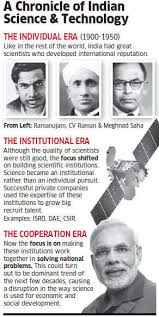The Intersection of Science and Technology: Shaping the Future
In today’s rapidly evolving world, the fusion of science and technology is creating unprecedented opportunities and challenges. This intersection, often referred to as “sci-tech,” is driving innovation across various sectors, from healthcare to communication, transforming the way we live and interact with our environment.
Advancements in Healthcare
The integration of scientific research and technological advancements has revolutionised healthcare. Breakthroughs in biotechnology, such as CRISPR gene editing, are paving the way for personalised medicine, allowing treatments to be tailored to an individual’s genetic makeup. Moreover, wearable technology and health-monitoring apps are empowering individuals to take control of their health by providing real-time data on vital signs and physical activity.
Transforming Communication
The sci-tech landscape has also dramatically altered how we communicate. The development of high-speed internet and mobile technology has made it possible to connect with anyone across the globe instantaneously. Social media platforms have become powerful tools for information dissemination, enabling people to share ideas and collaborate like never before. Additionally, advancements in artificial intelligence (AI) are enhancing communication through sophisticated language processing tools that break down language barriers.
Sustainable Energy Solutions
As concerns about climate change intensify, sci-tech innovations are crucial in developing sustainable energy solutions. Advances in solar panel technology and wind turbines have made renewable energy more efficient and cost-effective. Furthermore, research into energy storage systems is addressing the intermittent nature of renewable sources, ensuring a steady supply of power even when natural conditions fluctuate.
The Challenges Ahead
Despite these advancements, the intersection of science and technology also presents significant challenges. Ethical considerations around AI and biotechnology need careful deliberation to ensure responsible use. Data privacy concerns are paramount as digital technologies become more integrated into daily life. Moreover, ensuring equitable access to these technological benefits remains a critical issue that needs addressing globally.
Conclusion
The synergy between science and technology continues to shape our future in profound ways. As we harness these innovations for societal benefit, it is essential to navigate the accompanying challenges thoughtfully. By fostering a collaborative approach that includes scientists, technologists, policymakers, and the public, we can ensure that sci-tech developments lead us towards a more sustainable and equitable future.
Exploring the Advantages of Sci-Tech: Innovation, Efficiency, and Beyond
- 1. Innovation
- 2. Efficiency
- 3. Connectivity
- 4. Health Benefits
- 5. Environmental Sustainability
- 6. Economic Growth
Challenges in Sci-Tech: Ethical Dilemmas, Data Privacy, Job Displacement, and Reduced Human Interaction
- Ethical dilemmas surrounding the use of artificial intelligence and biotechnology
- Data privacy concerns as digital technologies become more pervasive
- Potential job displacement due to automation and robotics in various industries
- Growing dependency on technology leading to reduced human interaction
1. Innovation
Innovation lies at the heart of science and technology, driving continuous progress and sparking new possibilities across diverse domains. The synergy between scientific research and technological advancements fuels a cycle of discovery, enabling breakthroughs that shape the way we perceive and interact with the world. From cutting-edge medical treatments to revolutionary communication technologies, sci-tech innovations pave the path for a future where creativity and ingenuity propel us towards unprecedented achievements and solutions to complex challenges.
2. Efficiency
Technology plays a crucial role in enhancing efficiency within the realm of science. By leveraging technological tools and advancements, scientific processes are streamlined, leading to increased productivity and effectiveness in research and experimentation. Automation, data analysis software, and high-performance computing systems enable scientists to gather, process, and interpret data at a much faster pace than traditional methods. This accelerated pace not only expedites the discovery of new knowledge but also allows researchers to focus their efforts on more complex and innovative aspects of their work. Overall, the integration of technology in scientific endeavours significantly boosts efficiency, ultimately driving progress and breakthroughs in various fields.
3. Connectivity
Science and technology play a pivotal role in enhancing connectivity by bridging geographical boundaries and fostering collaboration on a global scale. Through the advancements in communication technologies, such as the internet and social media platforms, individuals from different corners of the world can easily connect, share information, and collaborate on projects. This interconnectedness not only accelerates the exchange of knowledge and ideas but also promotes cultural understanding and solidarity among diverse communities.
4. Health Benefits
The integration of scientific breakthroughs with technological applications in the healthcare sector brings about significant health benefits, ultimately enhancing healthcare outcomes and improving the quality of life for individuals. Innovations such as precision medicine and wearable health-monitoring devices enable personalised treatments and empower individuals to proactively manage their health. This synergy between science and technology not only advances medical research and diagnostics but also contributes to a more patient-centric approach to healthcare, leading to better overall well-being and longevity.
5. Environmental Sustainability
In the realm of environmental sustainability, science and technology present a compelling advantage by providing innovative solutions for energy production, conservation, and resource management. Through advancements in renewable energy sources like solar and wind power, as well as the development of energy-efficient technologies, sci-tech is driving the transition towards a greener future. Additionally, smart systems and data analytics enable more effective monitoring and management of resources, contributing to reduced waste and enhanced sustainability practices across various industries.
6. Economic Growth
Investments in science and technology play a pivotal role in driving economic growth by fostering the creation of new industries, job opportunities, and markets. By supporting research and innovation in these fields, governments and businesses can spur the development of cutting-edge technologies that not only enhance productivity but also generate wealth and prosperity. The resulting expansion of industries and emergence of novel markets not only boost employment rates but also contribute to overall economic advancement, positioning countries at the forefront of global competitiveness.
Ethical dilemmas surrounding the use of artificial intelligence and biotechnology
The rapid advancement of artificial intelligence (AI) and biotechnology has brought about significant ethical dilemmas that society must address. As AI systems become increasingly autonomous, questions arise regarding accountability and decision-making, particularly in critical areas such as healthcare, law enforcement, and autonomous vehicles. The potential for bias in AI algorithms also poses a threat to fairness and equality, as these systems can inadvertently perpetuate existing prejudices if not carefully managed. In the realm of biotechnology, innovations such as genetic editing present moral concerns about the extent to which humans should interfere with natural processes. The prospect of “designer babies” raises issues around consent, the definition of normalcy, and the potential for exacerbating social inequalities. Balancing innovation with ethical responsibility is crucial to ensure that these powerful technologies are used for the greater good without compromising fundamental human values.
Data privacy concerns as digital technologies become more pervasive
As digital technologies become increasingly pervasive, one significant con is the growing concern over data privacy. With the vast amount of personal information being collected, stored, and shared online, individuals are at risk of having their privacy compromised. From targeted advertising to data breaches, the misuse of personal data can have far-reaching consequences, including identity theft and invasion of privacy. As companies and governments continue to leverage digital technologies for various purposes, there is a pressing need for robust data protection regulations and increased awareness among users to safeguard their privacy in an increasingly connected world.
Potential job displacement due to automation and robotics in various industries
One significant concern arising from the advancement of science and technology is the potential job displacement caused by automation and robotics in various industries. As machines become more sophisticated and capable of performing tasks traditionally carried out by humans, there is a growing fear that jobs will be lost to automation, leading to unemployment and economic instability. Industries such as manufacturing, transportation, and retail are particularly vulnerable to this shift, raising questions about how society can adapt to ensure that individuals are not left behind in the face of technological progress.
Growing dependency on technology leading to reduced human interaction
An emerging concern within the realm of sci-tech is the growing dependency on technology, which is gradually diminishing face-to-face human interaction. As individuals increasingly rely on digital devices for communication and socialisation, the art of meaningful personal connections is at risk of being eroded. The convenience and efficiency offered by technology can inadvertently isolate individuals from genuine interpersonal relationships, potentially leading to feelings of loneliness and disconnection in an increasingly digitised society. It is crucial to strike a balance between leveraging technological advancements for productivity and preserving the essential human element of empathy, understanding, and authentic communication in our interactions with others.




